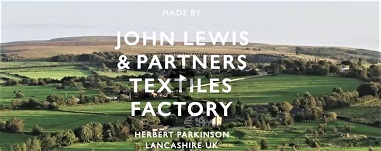A 2020 draft found and checked for updates which are summarised in the following posts.
The West Midlands Producers’ site notes that the reshoring trend, successes and possible pinch points, has been systematically explored and publicised by Professor David Bailey since 2013.
Professor Dr Michael D. Johnson, Department of Engineering Technology and Industrial Distribution, Texas A&M University, explained briefly in the FT: “My colleagues and I have found that importing goods from China to developed countries (for example, the US) entails numerous increased costs: transportation, inventory carrying, and production and logistics oversight. The combination of these increased costs, just-in-time manufacturing needs, and increased developing country labour rates contribute to the economic viability of localised flexible manufacturing facilities serving developed country markets”.

Since the late 1970s the textile industry had experienced a steady decline; output fell by 64.7% between 1979 and 2013. The exception: for over fifty years John Lewis has steadfastly had its own-brand furnishings, fabrics and curtains made by its company, Herbert Parkinson Ltd, in Darwen Lancashire.
The FT reports that, with overseas production costs rising, the UK textile industry is growing. With overseas production costs rising and retailers demanding fast turn-round times, parts of the industry are experiencing rising demand and a shortage of workers. The industry has had to make an appeal across the former cotton towns around Manchester, searching for people who had left the industry and want to come back, as well as for new trainees.
In Manchester, a family owned company, Dawson Rodgers, which provides own-brand ranges for retailers and Clair de Lune products, has seen turnover up 50% this year to record levels and has taken on 20 workers making 60 in all, and is still recruiting.
 Another instance of the gradual recovery of the UK’s textile trade is the decision of FTSE 100 company Burberry to invest £50m in Leeds, creating about 200 new jobs in the city centre from 2019. Though lockdown sent sales tumbling in 2020 and led to job losses, in 2021 rehiring has started.
Another instance of the gradual recovery of the UK’s textile trade is the decision of FTSE 100 company Burberry to invest £50m in Leeds, creating about 200 new jobs in the city centre from 2019. Though lockdown sent sales tumbling in 2020 and led to job losses, in 2021 rehiring has started.
The company’s existing factories in Castleford and Keighley, which had doubled capacity in five years closed and production moved to the new Leeds factory. The 770 skilled workforce will move to the new site which is 21 minutes away by rail and 50 by road.
 Work on the city centre site for Burberry, in South Bank, Holbeck, restoring the Grade I listed Temple Works building, a former flax mill (below), is due to begin next year.
Work on the city centre site for Burberry, in South Bank, Holbeck, restoring the Grade I listed Temple Works building, a former flax mill (below), is due to begin next year.
After a wave of closures during the recession, the textile industry has stabilised.
Leeds city region has 6,800 people working in the industry. Other thriving companies include:
- Hainsworth, which provides the cloth for the red Guards uniforms, and makes woollen coffins;
- Abraham Moon in Guiseley, which recently expanded its factory;
- Laxtons, a historic yarn spinner, which has returned to manufacturing.
- Award-winning Camira Fabrics, based in Mirfield, has also invested heavily and has opened the UK’s first new dye house for more than 20 years.
Ian Burn, Camira’s marketing director, said “You cannot compete on price. You have to be innovative and offer excellent service. The fear of the far east has gone. Countries like India and China are now markets for us”.
–
A useful background paper on the UK textile industry may be seen here.
o
–